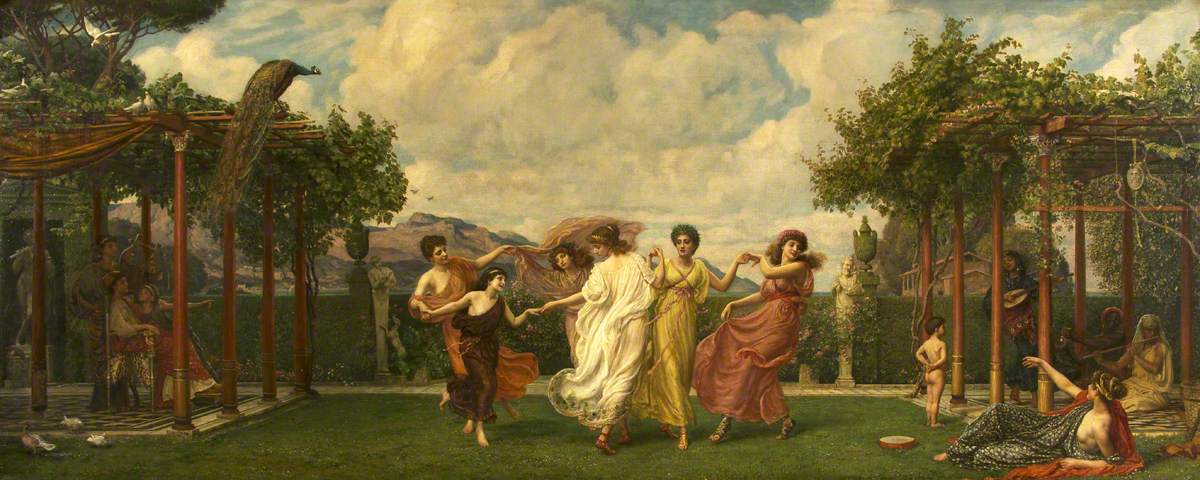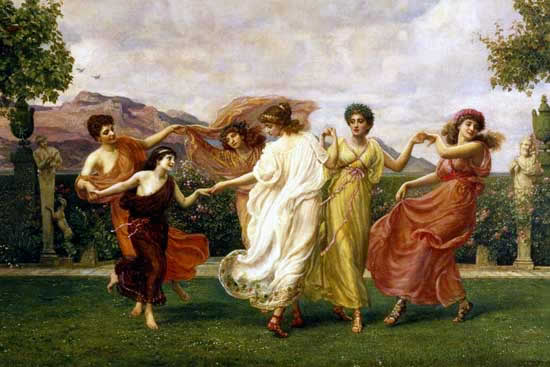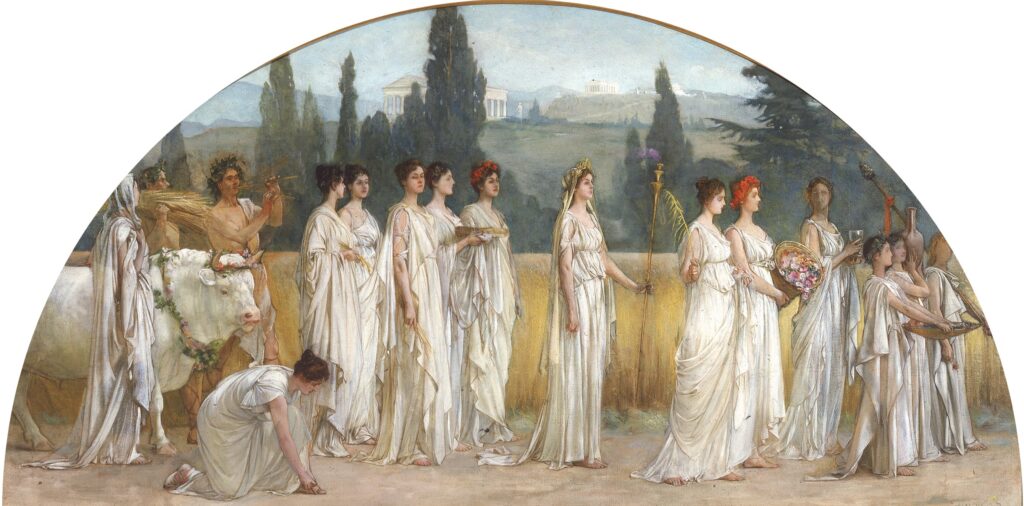

The Horae – Detail – Poynter
“The Horae were originally the personifications of nature in its different seasonal aspects….” Wikipedia
Yesterday, I wrote about how I celebrate the seasons in my garden:
In the above post, I acknowlege that I am aware of my own internal clock that has a need to celebrate the seasons of nature.
The word “Horae” is a derivative of the English word “Hours,” and the Horae were celebrated by the Ancient Greeks thousands of years ago. It would seem that my personal internal clock is part of the humanity’s awareness of how nature changes, as it dances yearly from spring to summer to autumn to winter.

Thesmophoria
Francis David Millet
Brigham Young University
“Thesmophoria was a three-day festival in ancient Greece that honored the goddesses Demeter and Persephone and celebrated human and agricultural fertility. The festival was held annually, usually in late autumn around the time seeds were sown, but in some places it was associated with the harvest. The festival was celebrated by free, adult, married women, though some ceremonies were also performed by maidens. The festival’s rituals were kept secret.”
Demeter was the goddess of agriculture and her daughter Persephone was the goddess of spring. In an effort to unerstand and he f=explain why nature radically changed during fall and winter, the Ancient Greeks created a Myth. The Myth of Persephone says that Hades, the god of the dark underworld, snatched Persephone and carried her to his lair of darkness, but because of her mother’s pleas to Zeus, Persephone was released, and the time of that relase from darkness was the first spring. Thereafter, the cycle has repeated every year.I
“In the Greek myth of Persephone, Zeus orders Hades to release Persephone from the underworld after her mother, Demeter, causes a famine to protest her daughter’s absence. Demeter is grief-stricken over the loss of her daughter and withholds crops from growing. Zeus sends Hermes to convince Hades to release Persephone, but Hades tricks her into eating a pomegranate seed before letting her go. Because she ate food from the underworld, Persephone can’t be fully freed and must spend part of the year with Hades. A compromise is reached where Persephone spends four months with Hades as his queen, one for each pomegranate seed she ate, and the other eight months with her mother.” Google ai
The Seasons have inspired numerous painters and writers. On August 1, I’ll begin talking about Natalie Babbitt’s book Tuck Everlasting, and on October 1, I’ll begin talking about Ray Bradbury’s Something Wicked This Way Comes. Both of those books are literary studies of the Seasons of Life.
Discover more from Jacki Kellum
Subscribe to get the latest posts sent to your email.